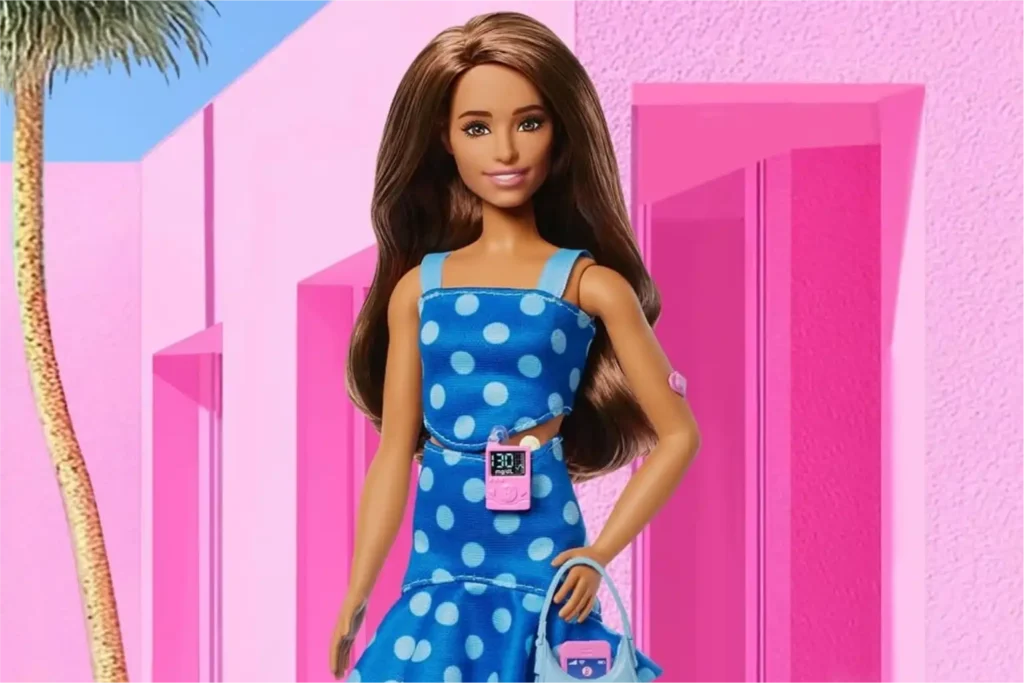
Mattel has introduced its first-ever Barbie doll with type 1 diabetes, a move hailed as a milestone in the toy industry’s ongoing push for inclusivity.
The new doll, launched as part of Barbie’s Fashionistas line, is designed to reflect the real-life experiences of children living with type 1 diabetes, an autoimmune disease that often begins in childhood and requires lifetime monitoring.
In collaboration with Breakthrough T1D (formerly JDRF), the doll comes equipped with realistic medical accessories: a continuous glucose monitor (CGM) attached to her arm with heart-shaped tape, an insulin pump on her waist for automated dosing, a mobile phone with a CGM app, and a pastel blue bag to carry diabetes essentials like snacks or supplies. She also wears a blue polka-dot outfit—a nod to the colour associated with diabetes awareness.
Also Read | Late puberty may raise type 2 diabetes risk in boys: new research
“Introducing a Barbie doll with Type 1 diabetes marks an important step in our commitment to inclusivity and representation,” said Krista Berger, Senior Vice President of Barbie and Global Head of Dolls at Mattel. “Barbie helps shape children’s early perceptions of the world. By reflecting medical conditions like type 1 diabetes, we ensure more kids can see themselves in the stories they imagine.”
Barbie has come a long way since her 1959 debut. While Black and Hispanic dolls were introduced in the 1960s and 1980s, respectively, Barbies with physical disabilities only joined the line in 2019. Today, the Fashionistas range features over 175 unique looks, including dolls with Down syndrome, vitiligo, hearing aids, prosthetic limbs, and wheelchairs, as well as a blind Barbie.
“For children with type 1 diabetes who don’t often see themselves represented, this doll is a powerful role model,” said Karen Addington, CEO of Breakthrough T1D UK. “It celebrates their strength and brings recognition, inclusion, and joy to their play.”
To amplify the message, Mattel is honouring two public figures living with type 1 diabetes: model Lila Moss and Peloton instructor Robin Arzón, both of whom are helping promote the launch. Arzón said she hopes the doll “shows kids that all types of challenges give us even more reason to push forward and achieve our dreams.”
The new Barbie is currently available online and in select retail stores, priced at $10.99. Mattel also plans to donate dolls to Breakthrough T1D’s 2025 Children’s Congress, which brings together children with diabetes to advocate for health policy change in Washington.
Mattel’s latest release underscores a broader industry shift toward diversity and realism in toys. Other brands like Lottie and LEGO have also introduced characters with visible and invisible disabilities recently.








